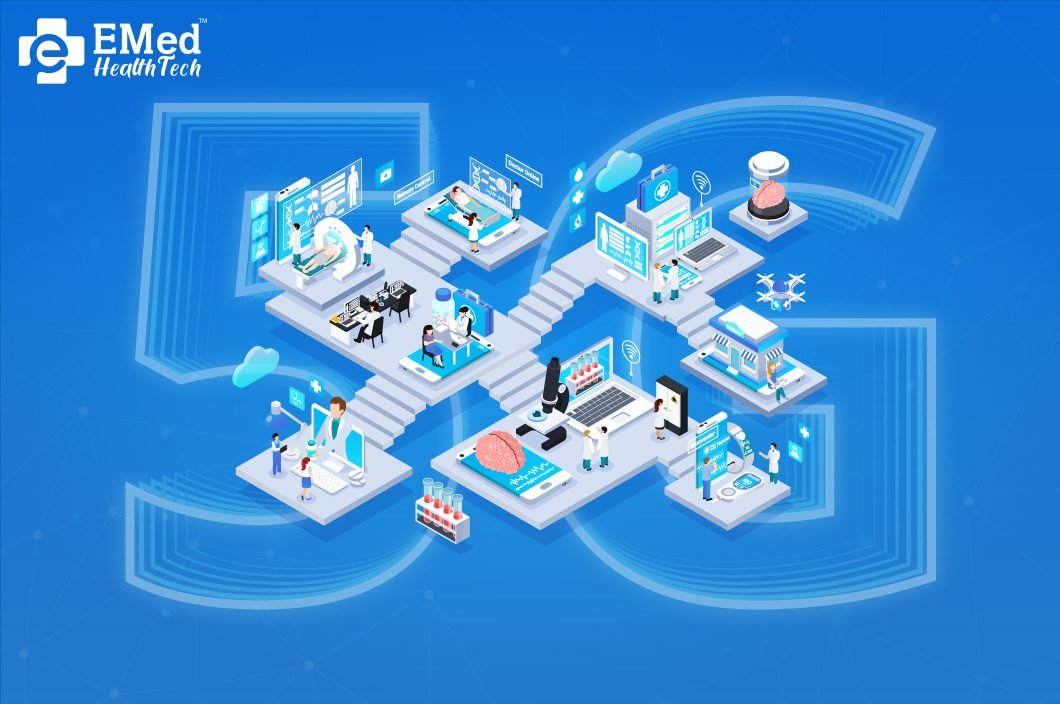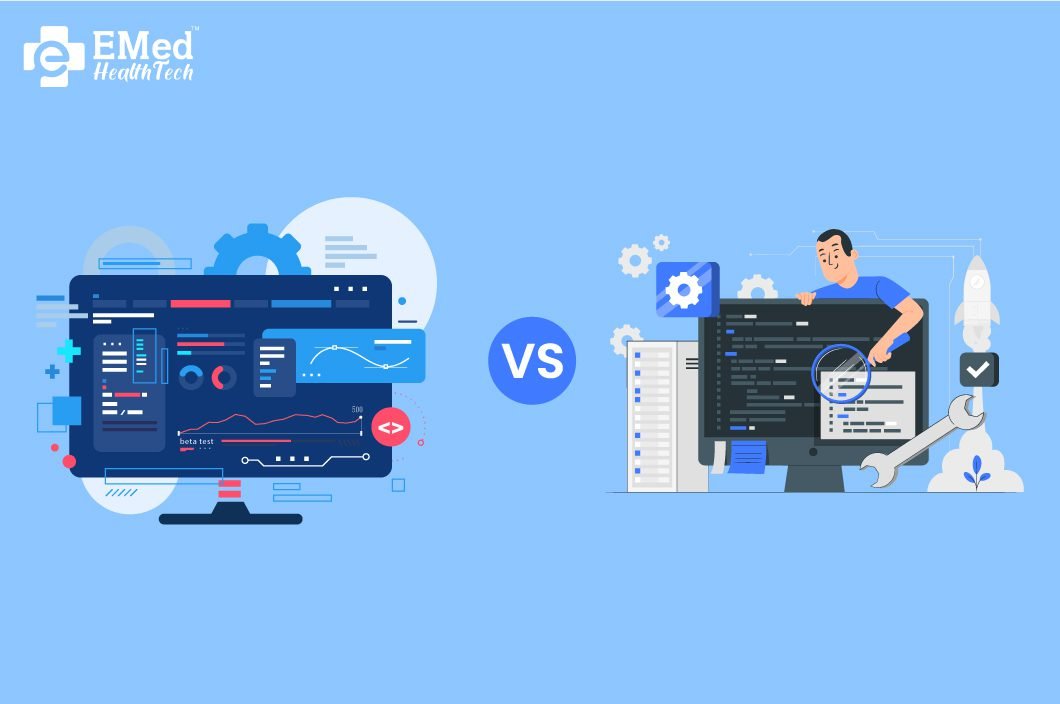With the digital era transforming the healthcare sector, cutting-edge technologies are reshaping how patients and providers access and deliver care. Among these innovations, doctor appointment apps have emerged as a pivotal solution, enhancing healthcare accessibility and operational efficiency. These apps are transforming healthcare accessibility and productivity worldwide, from expediting appointment scheduling to cutting wait times and increasing patient participation.
In this blog, we explore the significant impact of doctor appointment apps, detailing how they streamline healthcare processes, promote better patient interaction, and align with the latest advancements in Healthcare IT Consulting.
 1. Streamlining Appointment Scheduling
1. Streamlining Appointment Scheduling
One of the core advantages of doctor appointment apps is their ability to simplify the scheduling process, making it quicker and more accessible for patients and healthcare providers. Traditionally, booking an appointment required patients to call clinics, wait on hold, and coordinate schedules. Doctor appointment apps replace this with a seamless digital experience, allowing patients to schedule appointments effortlessly.

- Real-Time Availability: These apps let patients view real-time availability and schedule appointments accordingly, eliminating the need for back-and-forth communication.
- Instant Confirmation: Patients receive immediate appointment confirmation, reducing the chances of missed or double-booked appointments.
- Self-Service Options: Patients can manage their appointments, allowing clinic staff to focus on essential tasks. This self-service model contributes to greater efficiency within healthcare facilities.
Streamlined scheduling benefits patients and enhances clinic productivity by reducing administrative load and allowing better resource allocation. With support from Health IT Integration Consulting, clinics can leverage automated systems to achieve a more efficient, patient-centric workflow.
2. Saving Time and Enhancing Clinic Efficiency
Doctor appointment applications let patients wait less for scheduling and in-clinic appointments. Long wait times are one of the most common complaints in healthcare, but these apps help minimize them by providing accurate scheduling and real-time updates.
- Appointment Reminders: Automated reminders reduce no-shows, ensuring a smoother, more predictable clinic schedule and less disruption.
- Optimized Scheduling: By allowing clinics to schedule more efficiently, doctor appointment apps help minimize the gaps between patient appointments, reducing idle time and ensuring steady patient flow.
- Check-In Options: Some apps also offer pre-visit check-ins, enabling patients to complete forms and registration online, saving valuable in-clinic time.
Efficient scheduling and minimized wait times lead to improved patient satisfaction, and increased productivity for healthcare providers. Integrating these features with Electronic Health Records (EHR) Consulting further optimizes operations, allowing for seamless, secure data handling and access.
3. Improving Healthcare Accessibility
Doctor appointment apps play a key role in enhancing healthcare accessibility. With the ability to reach patients in both urban and rural areas, these apps make healthcare services more inclusive and accessible to underserved populations.

- Remote Access: Patients in rural or underserved areas can easily connect with healthcare providers through the app, reducing the need for long commutes to clinics.
- 24/7 Availability: Patients can schedule appointments at any time, eliminating the restriction of office hours and improving access to healthcare for those with busy schedules.
- Telemedicine Integration: Many doctor appointment apps now offer telemedicine functionalities, allowing patients to consult with providers from the comfort of their homes. This feature, supported by Telemedicine IT Solutions, is particularly useful for patients who may have mobility challenges or time constraints.
These features break down barriers to healthcare access, providing patients with more convenient ways to receive care regardless of location or time. This broader accessibility contributes to a more inclusive healthcare system that benefits everyone.
4. Increasing Patient Engagement
Engaging patients in their healthcare journey leads to better health outcomes and improved healthcare efficiency. Doctor appointment apps offer several tools that encourage patients to actively participate in their care.

- Personalized Healthcare Reminders: Beyond appointment reminders, apps can send alerts for medication refills, follow-up visits, and wellness checkups, ensuring continuity of care.
- Access to Health Data: Some doctor appointment apps allow patients to view their medical records, test results, and medications, increasing their engagement in their healthcare journey.
- Feedback and Reviews: Many apps enable patients to provide feedback on their healthcare providers, fostering a culture of transparency and trust.
Increased patient involvement results in better health outcomes and greater adherence to care plans. Partnering with a Healthcare Data Analytics Consulting service can further enrich these apps, providing valuable insights into patient behaviour and preferences that help clinics refine their services.
5. Enhancing Accuracy and Data Management
In the healthcare industry, where even small mistakes can have serious repercussions, accurate data management is essential. Doctor appointment apps streamline data collection and reduce the chances of scheduling errors or patient data mishandling.

- Centralized Data: These apps maintain all patient information, appointment history, and medical records in a single, centralized system, minimizing misunderstandings and misplaced documents.
- Seamless EHR Integration: Many doctor appointment apps integrate with EHR systems, allowing healthcare providers quick and easy access to patient data. EHR integration, backed by Electronic Health Records (EHR) Consulting, provides a seamless data flow between different healthcare systems, reducing administrative burden.
- Automated Reporting and Reminders: The apps can automate follow-up reminders, reducing the need for manual intervention. Data collected through the app also enables providers to analyze patient behaviours, helping clinics to optimize their services.
Efficient data management allows healthcare providers to focus on delivering quality care, with fewer errors and less time spent on administrative tasks. It also improves patient satisfaction by providing a seamless, error-free experience.
6. Empowering Healthcare Providers for Better Patient Care
Doctor appointment apps not only benefit patients but also provide healthcare providers with the tools they need to offer higher-quality care. By reducing administrative burdens and improving time management, these apps free up healthcare professionals to concentrate on patient care.

- Time Management: Automated scheduling, reminders, and notifications reduce administrative workload, allowing healthcare providers to spend more time with patients.
- Streamlined Patient Communication: Built-in communication tools enable patients to ask questions or express concerns, giving providers the chance to address issues promptly.
- Reduced Paperwork: By automating tasks like appointment scheduling and billing, these apps significantly reduce paperwork, further enhancing healthcare efficiency.
Providers equipped with doctor appointment apps can offer more attentive and efficient care, leading to higher patient satisfaction and better overall outcomes. Through Healthcare IT Consulting, clinics can customize these apps to align with their unique workflow and operational needs.
Conclusion
Doctor appointment apps are changing the healthcare landscape, boosting productivity, and improving accessibility across the sector. By streamlining scheduling, reducing wait times, promoting patient engagement, and enhancing data accuracy, these apps offer a comprehensive solution for both patients and providers. As healthcare continues to evolve, doctor appointment apps will play a vital role in meeting patient expectations and ensuring efficient clinic operations.
Looking to develop a doctor appointment app that enhances productivity and accessibility for your practice? Connect with EMed HealthTech for custom solutions tailored to improve patient engagement, optimize clinic operations, and empower your team to provide exceptional care. Let us help you transform your practice with cutting-edge technology and seamless digital integration.


















